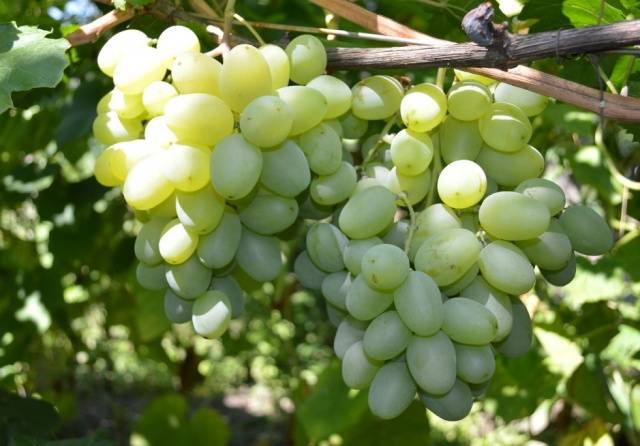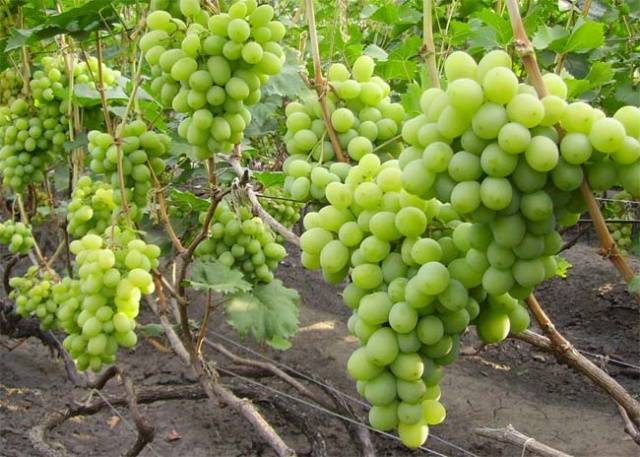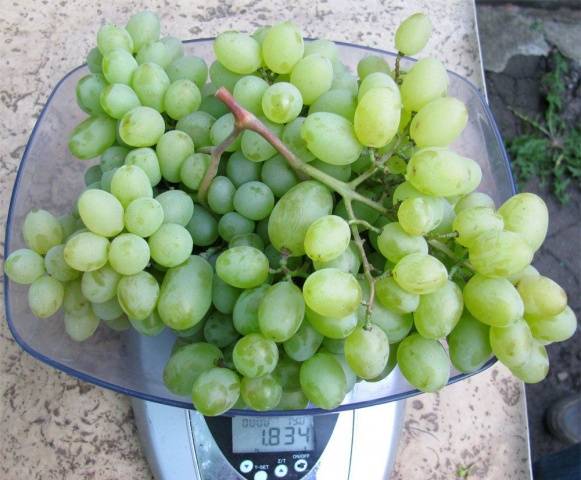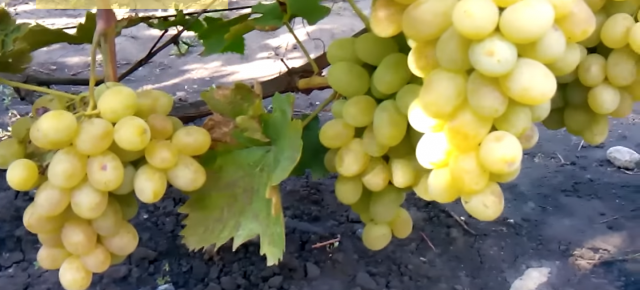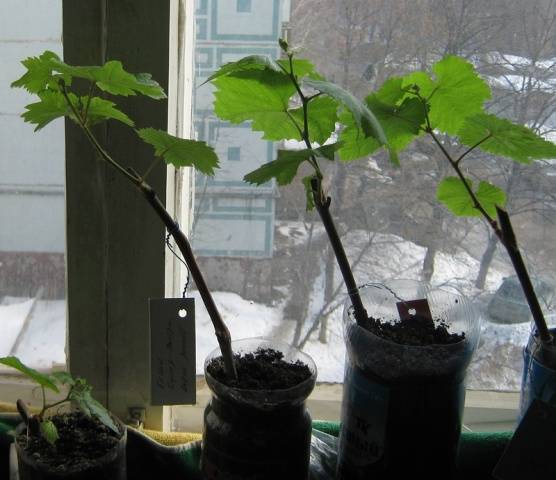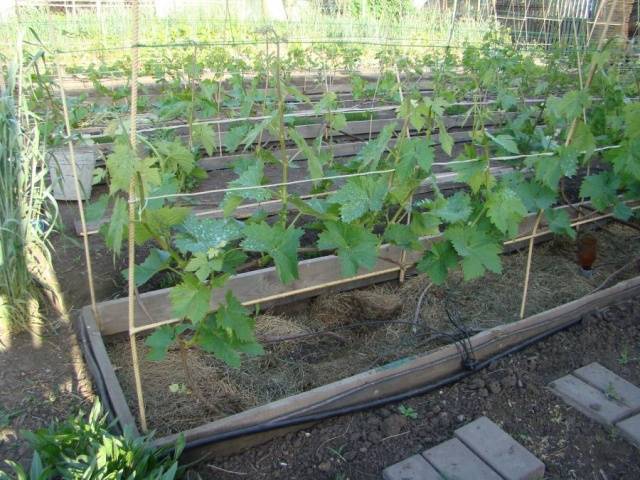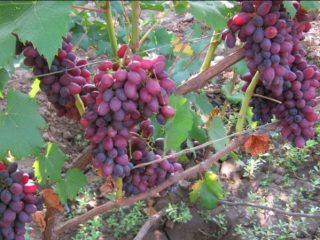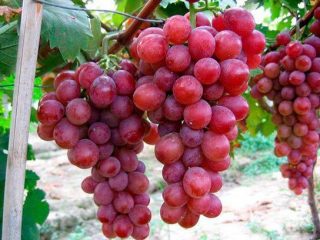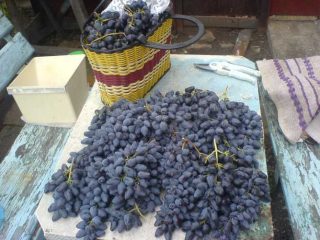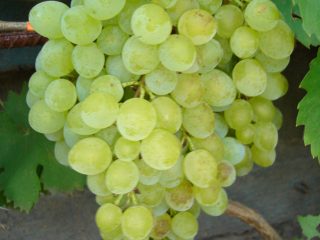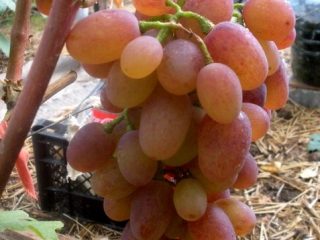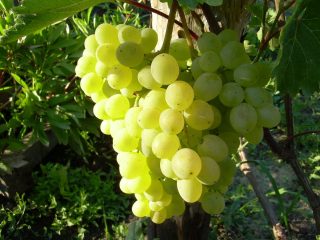Content
Grapes are a wonderful dessert treat. Gardeners are constantly in search of new grape varieties, especially frost-resistant ones. The hybrid form of the Gift of Zaporozhye grape can also be grown in the middle climate zone, covered for the winter. The vigorous vine has stable yields and is suitable even for beginning winegrowers.
Characteristics of the variety
If anyone is looking for a problem-free grape variety for their personal plot that produces results in the first years, this is the Gift of Zaporozhye. The grapes, as can be seen in the photo, bear fruit abundantly, give aesthetic pleasure from the contemplation of a magnificent bunch, a harmonious taste of large berries and please with longevity. A new successful mid-season variety was bred by breeder from the Ukrainian city of Zaporozhye E.A. Klyuchikov based on the famous Talisman grapes and intermediate seedlings V-70-90 + R-65. Later, another related hybrid was created - the early grape variety New Gift to Zaporozhye.
The table grape variety Podarok Zaporozhye has high quality characteristics in almost all indicators:
- Rapid rooting and adaptation of seedlings;
- Strong vine growth;
- Pollination of grapes is good and does not depend on the vagaries of the weather;
- The first harvest is tried in the second year after planting;
- Fruiting occurs on days 130-145, depending on the agricultural background and the degree of illumination. The grape variety ripens from the third ten days of August to September 10. The bunches, if there is no frost, can hang on the vine until mid-October.
Rainy weather is not a hindrance to the Zaporozhye Gift, as described. The grapes retain their amazing deep green color even when overripe. Grapes should be transported very carefully.
In the southern regions, this grape variety is planted in the shape of a gazebo, which provides the vine with greater access to the sun. According to gardeners, Podarok Zaporozhye grapes when planted this way bring a better harvest: the clusters and berries increase, the sugar content and shelf life increase. The variety can withstand frosts down to -24 degrees. If winter temperatures tend to drop lower in colder areas, cover the vines.
You can plant vines with bisexual flowers nearby for better pollination. Usually such a bush somewhere in the neighborhood is enough.
Advantages and disadvantages
In reviews of Gift to Zaporozhye, gardeners note that this grape variety has obvious advantages.
- Abundant fruiting, the ability to resist peas. 70% of the ovaries mature;
- Bright taste and external characteristics of grapes;
- Uniformity of berries in the bunch;
- Resistance to rainy weather;
- Commercial attractiveness;
- Winter hardiness;
- Keeping quality until December;
- High resistance of the vine to infection by fungal diseases: mildew, oidium, rot.
The disadvantage of this variety is the need for careful transportation.The bunches are placed in boxes in one layer, otherwise the berries are easily torn from the stem. Some gardeners note the excessive juiciness of the pulp of the table variety.
Description
The sight of a powerful grape vine of this variety, bearing weighty green bunches, is admirable. The vigorous bush has three-lobed dark green leaves, slightly dissected. Despite the functionally female type of flower, pollination is successful.
In their descriptions of the Podarok Zaporozhye grape variety, gardeners note that its conical clusters are medium-dense, but there are also loose ones. Their weight is on average 700-1200 g, smaller ones - 600 g, record ones reach 2 and even 2.5 kg.
The berries of the Podarok Zaporozhye variety are oval, large, up to 33-40 mm long, 24-25 mm wide. The light green color does not change even with biological ripeness. The bunch contains berries of uniform size. They weigh 10-12 g, in very large clusters - up to 20 g. The skin is dense, as a rule, does not crack in the rain. The pulp is very juicy, fleshy, sweet. Fruit sugar content is within 15-18%. The simple taste is distinguished by the harmony of grape and apple notes. Tasters gave the grape variety a high rating.
Features of the subsequent variety
A few years after receiving this vine, breeder E.A. Klyuchikov developed another grape variety. The new Gift to Zaporozhye, according to the variety description and photo, is similar in appearance to its predecessor, but differs in characteristics. This table hybrid came from crossing the Podarok Zaporozhye and Vostorg grape varieties.
- Fruits early, by early August, after 115-125 days;
- The vine is medium-sized, with female and male flowers and massive clusters from 700 g to 2 kg;
- The New Gift of Zaporozhye grape berries are oval, elongated, with an average weight of 12 g.The color of the fruit is more saturated with light. Sweeter in taste, got 8 points from tasters;
- 97% of ovaries mature;
- The frost resistance and resistance of the vine to fungal diseases is the same;
- Shoot survival rate – 95%:
- Potential fruit load – 30-40 buds.
The New Gift of Zaporozhye grape variety is recognized as suitable for cultivation by large agricultural enterprises.
Growing
Podarok Zaporozhye grape cuttings are planted mainly in the spring, although autumn plantings are also possible, up to October. The grapes quickly take root and get used to new conditions.
Selecting a location
Since grapes are a native southern crop, the vine is placed in a sunny place. Planting and caring for Gift of Zaporozhye grapes will be successful if the vine is placed on the south side of buildings or a strong fence. Protection from northern winds will be an additional guarantee of a sweet harvest. You need to take care of planting grapes with bisexual flowers on the site, not necessarily nearby, for more complete pollination. If there is such a vine in a neighboring plot, you don’t have to plant another one. The soil is cleared of weed and loosen.
Well preparation
If several vines of this grape variety are planted, they are placed at a distance of 2.5 m. The planting hole is dug deep, up to 1 m. The width is twice the diameter of the roots of the seedling.
- Drainage is placed at the bottom: stones, ceramics, sand;
- Then the top fertile removed layer of soil is mixed with humus and phosphorus-potassium fertilizers and poured into the hole.
Landing
In seedlings suitable for growing with a woody stem, swollen buds are clearly visible. The bark is without any damage or signs of disease. If the grape seedlings were stored in the basement, buried in sand, they are soaked in water overnight before planting. It is possible to use drugs that stimulate root formation.
- The seedling is placed in a hole, where 10 liters of water are poured, and sprinkled with soil;
- The stem is attached to a support and cut off, leaving three shoots.
Care
The planted grapes are carefully looked after: watered, loosened the soil, and weeds removed. Watering is especially important for grapes during the period of flowering and berry formation. With drip irrigation it is convenient to introduce dosed fertilizers.
The list of works for caring for Podarok Zaporozhye grapes includes insulation in the first three years of the growing season. In areas with cold winters, insulating the vines of this variety is mandatory every year.
In the spring, the vines are treated prophylactically with iron or copper sulfate. Spray against pests on the buds, on the first leaves and before flowering.
Trimming
The next mandatory item in vine care is pruning. Before winter, a little more buds are left to ensure a harvest if the shoots freeze in particularly harsh weather.
- After collecting the brushes, the lower young shoots are removed at a height of 50 cm from the soil surface;
- The next tier of sleeves is shortened by 10%, removing the side stepsons;
- Before winter, 10-15 days after leaf fall, the young lower shoots that grew outside the sleeve are shortened on the vine, leaving 4 or 5 eyes. They serve as future replacements;
- The upper shoots, future fruiting branches, remain with 8-12 buds;
- Only three shoots are left on one sleeve;
- In spring, you need to cut off all young branches from below;
- It is necessary to make cuts from the inside of the branches, from the side that is located inside the bush. Such cuts heal faster;
- The cuts are made smooth with a sharp tool.
Preparing for winter
If gardeners in regions with cold weather are wondering what the frost resistance of Podarok Zaporozhye grapes is and whether they will withstand the winter, the answer is clear: only under cover. This variety is shaped like a fan. Before frost, the vines are cut to 1 m and bent to the ground. They are covered with soil, sawdust, and leaves and spruce branches are placed on top. In the spring, the vine is attached to a support and all dew roots are removed.
The vine has many positive properties. But all of them will manifest themselves fully with diligent care.

